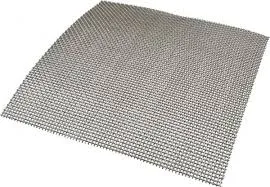-
+86 15030157877
-
sales@galvanizedmetalmesh.com
Nov . 30, 2024 18:23 Back to list
Leading Manufacturer of High-Quality Angle Steel for Various Industrial Applications
Angle Steel Manufacturer A Cornerstone of Modern Construction
In the dynamic world of construction and infrastructure, angle steel has emerged as a fundamental component due to its unique properties and versatile applications. Angle steel, also known as angle iron, is a structural steel product that has a distinctive ‘L’ shape, forming a right angle. As the backbone of countless architectural and engineering projects, angle steel manufacturers play a crucial role in ensuring the availability and quality of this essential material.
Understanding Angle Steel
Angle steel is typically produced in various sizes and thicknesses and can be made from different types of steel, including carbon steel and stainless steel, depending on its intended use. One of the key advantages of angle steel is its strength-to-weight ratio; it provides excellent structural support while remaining lightweight. This feature not only facilitates easier handling and transportation but also contributes to the overall efficiency of construction projects.
The manufacturing process of angle steel involves several stages, including melting, casting, rolling, and finishing. Modern angle steel manufacturers utilize advanced technologies to ensure precision and consistency in their products. This process begins with the selection of raw materials, which are meticulously sourced to maintain high quality standards. The steel is then melted in furnaces and cast into semi-finished shapes before being hot or cold rolled into the final forms.
Applications in the Industry
Angle steel is widely used across various industries and sectors, making it a versatile choice for builders and engineers. In construction, angle steel is commonly utilized for structural support elements such as beams, frames, and brackets. Its high strength allows it to support heavy loads, making it ideal for both residential and commercial buildings. Furthermore, angle steel is often used in the manufacturing of trusses and frames for roofs, bridges, and other infrastructure projects.
In addition to construction, angle steel finds applications in manufacturing, particularly in the production of machinery and equipment. It is used to create brackets, supports, and other structural components that require dependable strength and durability. Angle steel's resistance to deformation under heavy loads makes it a preferred choice for industries such as automotive, aerospace, and heavy machinery.
angle steel manufacturer

Quality Assurance in Manufacturing
Given its critical role in construction and manufacturing, quality assurance is paramount for angle steel manufacturers. The production of angle steel must adhere to strict industry standards to ensure safety and performance. Manufacturers typically implement comprehensive quality control measures, including rigorous testing for tensile strength, yield strength, and weldability.
To meet varying customer requirements, many angle steel manufacturers offer customized solutions. This could involve producing angle steel in specific dimensions, finishes, or grades to suit particular applications. Some manufacturers also provide additional services, such as cutting, drilling, and galvanizing, to enhance the product's usability and longevity.
Sustainability in Steel Production
In recent years, the construction and manufacturing sectors have increasingly prioritized sustainability. Angle steel manufacturers are no exception, as many are now adopting eco-friendly practices aimed at reducing their carbon footprint. This includes utilizing recycled steel in their production processes, minimizing waste, and implementing energy-efficient technologies in their facilities.
The steel industry has made significant strides toward sustainability, with many manufacturers investing in renewable energy sources and exploring innovative methods to lower emissions during production. By focusing on sustainability, angle steel manufacturers not only contribute to environmental protection but also meet the growing demand from consumers and businesses for sustainable building materials.
Conclusion
In conclusion, angle steel manufacturers are indispensable to the construction and manufacturing industries, providing essential materials that contribute to the strength and stability of structures worldwide. With their commitment to quality, innovation, and sustainability, these manufacturers play a vital role in shaping the future of construction, ensuring that projects are built to last while adhering to modern environmental standards. As the demand for reliable and versatile materials continues to grow, angle steel will undoubtedly remain a cornerstone of innovation in construction and engineering for years to come.
-
Welded Gabion Solutions: Durable & AI-Enhanced Designs
NewsAug.01,2025
-
Premium Welded Gabion Mesh | Robust & Eco-Friendly
NewsJul.31,2025
-
Premium Eco-Friendly Roof Tiles | Affordable & Durable
NewsJul.31,2025
-
Premium Roof Tiles for Durable & Stylish Roofing Solutions
NewsJul.30,2025
-
High-Quality Roof Tiles for Durable & Stylish Roofing Solutions
NewsJul.29,2025
-
High Quality Square Wire Mesh Manufacturer & Supplier for Wholesale
NewsJul.29,2025



